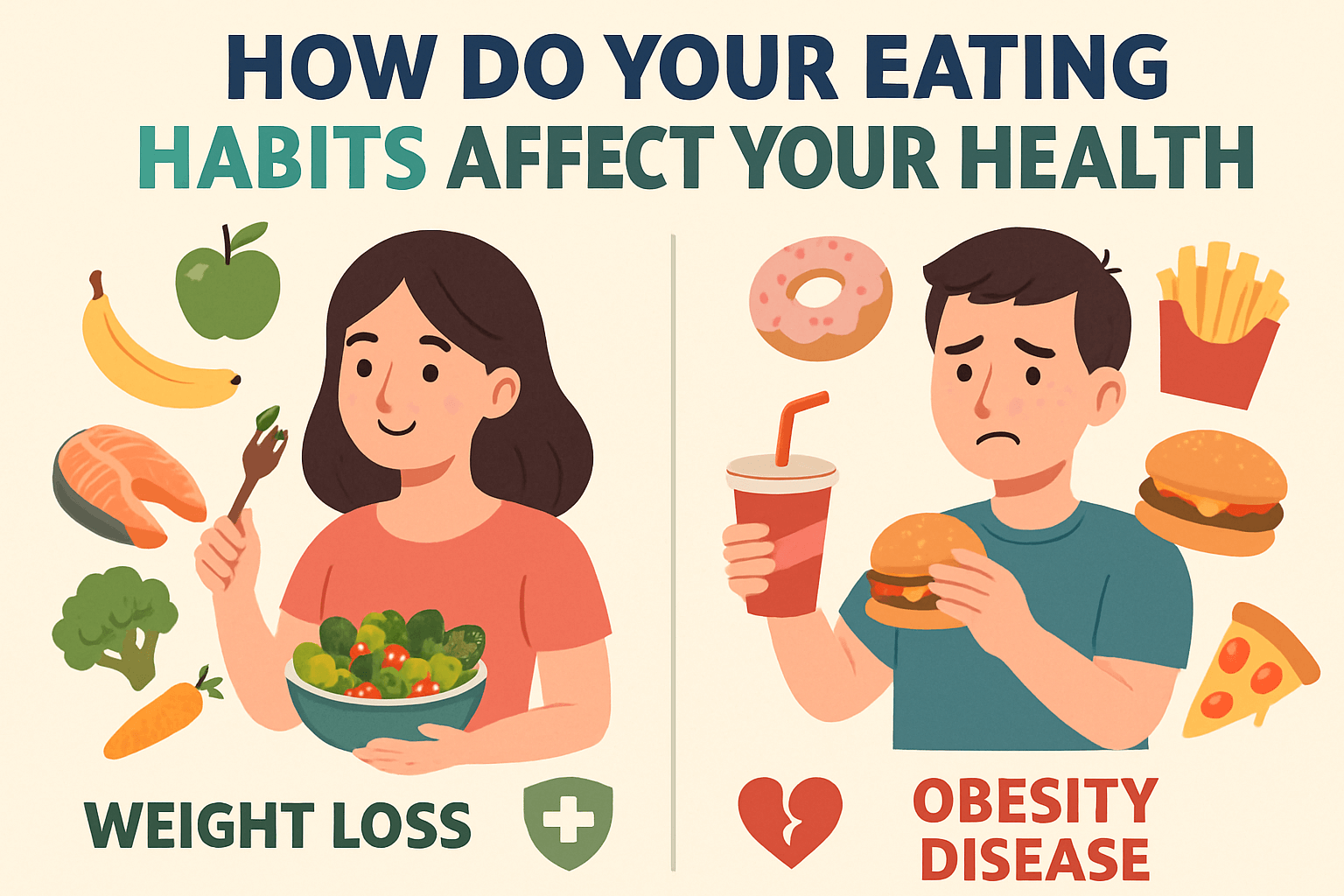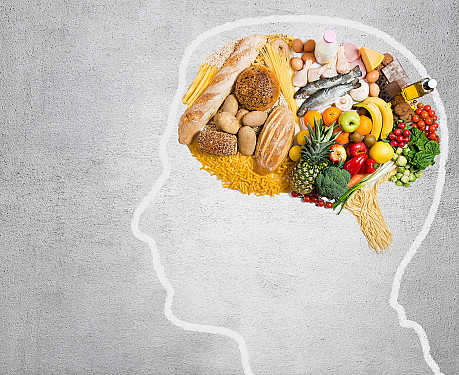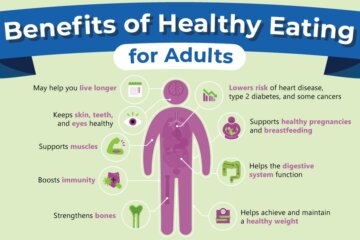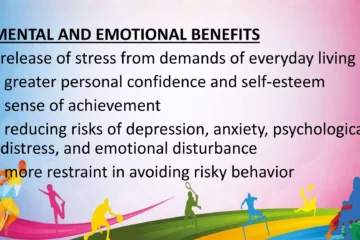“How Do Your Eating Habits Affect Your Health”
Have you ever wondered how your eating habits shape your physical health? Imagine being able to unlock a more energetic, vibrant version of yourself simply by making a few changes to your diet.
The foods you choose each day don’t just fill your stomach; they fuel your body, impact your mood, and lay the foundation for your overall well-being. Whether you’re reaching for that sugary snack or opting for a healthy salad, every bite counts.
Discover the surprising ways your eating habits influence your health, and learn how you can make smarter choices that lead to a healthier, happier you. Keep reading to find out how small changes can lead to big improvements in your life.
Nutritional Basics
Your eating habits shape your physical health. Understanding nutritional basics is key. Nutrition involves getting the right balance of nutrients. These nutrients fuel your body.
Knowing what your body needs can improve your overall well-being. It helps you make better food choices. This section explores essential nutrients and daily requirements.
Macronutrients And Micronutrients
Macronutrients include carbohydrates, proteins, and fats. These are needed in large amounts. Carbohydrates provide energy. Proteins build and repair tissues. Fats support cell function.
Micronutrients are vitamins and minerals. They are required in smaller amounts. They play a crucial role in bodily functions. Vitamins help with immunity and energy. Minerals support bone health and fluid balance.
Daily Nutritional Requirements
Daily nutritional needs vary by age, sex, and activity level. An adult needs about 2,000 calories each day. This includes a balance of macronutrients.
A varied diet ensures you get all essential nutrients. Aim for fruits, vegetables, grains, and proteins. This helps meet your daily nutritional needs.

Impact On Physical Health
Your eating habits shape your physical health in profound ways. The choices you make at mealtime can influence everything from your weight to the strength of your bones. Think about the last meal you had; did it help you, or did it hurt you? Understanding the impact of your diet on physical health can empower you to make better choices for a healthier future.
Weight Management
Have you ever wondered why some people struggle with weight while others maintain it effortlessly? It’s often down to eating habits. Consuming high-calorie, low-nutrient foods can lead to weight gain. On the other hand, a balanced diet rich in fruits, vegetables, and lean proteins supports weight management.
Imagine how you would feel waking up every day with more energy and confidence. A healthy weight isn’t just about looking good; it’s about feeling good and reducing the risk of diseases like diabetes.
Heart Health
Your heart is like a car engine; it needs quality fuel to run smoothly. Eating foods high in saturated fats and cholesterol can clog your arteries, increasing the risk of heart disease. Opting for heart-healthy choices like olive oil, nuts, and fish can keep your heart beating strong.
How often do you think about your heart health when choosing what to eat? Every meal is a chance to protect your most vital organ. Small changes can lead to big benefits over time.
Bone Density
Strong bones are essential for a healthy life, and your diet plays a key role in maintaining bone density. Calcium-rich foods like dairy products, leafy greens, and almonds can help. On the flip side, excessive salt and caffeine can weaken your bones.
Consider the impact of your daily coffee habit; are you balancing it with enough calcium-rich foods? Prioritizing bone-friendly foods can prevent issues like osteoporosis as you age.
Your eating habits are more than just a routine; they are a major factor in your physical health. What changes can you make today to ensure a healthier tomorrow?
Influence On Mental Health
Your eating habits are not just about physical health; they deeply influence your mental well-being. Have you ever noticed how a sugary snack can give you a quick energy boost but then leave you feeling sluggish? It’s fascinating how what you eat can shape your mood and cognitive functions. Let’s dive into how your diet can affect your mental health.
Mood Swings
What you eat can have a direct impact on your mood. Consuming foods high in sugar and processed ingredients might lead to frequent mood swings. Imagine the rollercoaster of emotions after a sugary binge.
On the flip side, a diet rich in whole grains, lean proteins, and vegetables can stabilize your mood. Next time you’re feeling down, consider reaching for a handful of nuts or a piece of fruit. These small choices can create a more balanced emotional state.
Ask yourself: How often do you reach for junk food when stressed? Making mindful food choices can transform your mood and daily interactions.
Cognitive Function
Your brain needs fuel to function at its best. Omega-3 fatty acids found in fish and flaxseed are known to support cognitive function. Incorporating these into your diet can sharpen your focus.
Conversely, diets high in unhealthy fats and sugars may cloud your thinking. Ever found yourself struggling to concentrate after a heavy meal? That’s your brain processing the overload.
Consider adding foods like blueberries and spinach to boost your mental clarity. They are like nature’s brain boosters. What could you achieve with a more focused mind?
Ultimately, your eating habits are a powerful tool in shaping your mental health. By choosing foods that nourish both body and mind, you can enhance your mood and cognitive abilities. Are you ready to make mindful choices for a healthier, happier you?
Role Of Diet In Chronic Diseases
Your eating habits play a critical role in shaping your physical health. What you eat can either support your body’s defenses or make it vulnerable to chronic diseases. The right diet might be your best ally in maintaining your health long-term.
It’s not just about calories or carbs; it’s about the quality of the food you choose. Nutrient-rich foods like fruits, vegetables, and whole grains can help ward off chronic conditions. Have you ever thought about how your daily meals could be affecting your future health?
Diabetes Risk
Managing diabetes is significantly tied to diet. Foods high in sugar and refined carbs can increase blood sugar levels, raising your diabetes risk. Swapping these for whole grains and vegetables can make a big difference.
Try to include more fiber in your meals, as it helps in slowing down sugar absorption. Small changes, like choosing whole grain bread over white bread, can have long-lasting effects. Have you noticed changes in your energy levels when you eat healthier foods?
Another aspect is portion control. Eating large portions, even of healthy foods, can lead to weight gain, which is a risk factor for diabetes. Paying attention to how much you eat is as crucial as what you eat.
Cancer Prevention
The link between diet and cancer is profound. Consuming a variety of colorful fruits and vegetables provides antioxidants that help fight cancer-causing agents. Think of your plate as a canvas and paint it with a rainbow of produce.
Processed meats and high-fat foods have been associated with an increased risk of certain types of cancer. Consider reducing your intake of these and replacing them with lean proteins like chicken or fish. Have you ever tried plant-based proteins like beans or lentils? They’re nutritious and versatile.
Hydration is another important factor. Drinking enough water helps in digestion and can prevent some types of cancer. How often do you choose water over sugary drinks?
Your diet is a powerful tool in managing your health. By making informed choices, you can reduce your risk of chronic diseases and improve your quality of life. What changes are you willing to make to protect your health?
Eating Habits And Digestion
Eating habits play a crucial role in digestion. How and what you eat influences how your body processes food. A balanced diet supports your digestive system. It ensures nutrients are absorbed efficiently. Poor eating habits can stress your digestive organs. This leads to discomfort and health issues. Understanding this connection can guide you to healthier choices.
Gut Health
Your gut health depends on your diet. A fiber-rich diet promotes good bacteria growth. These bacteria aid in digestion and nutrient absorption. They also protect against harmful pathogens. Processed foods and sugar can harm gut bacteria. This imbalance may cause digestive issues. Consuming probiotics can boost your gut health.
Digestive Disorders
Poor eating habits may lead to digestive disorders. Fast food often lacks essential nutrients. This can result in constipation or bloating. Eating too quickly can cause indigestion. Overeating puts stress on your digestive organs. It may lead to acid reflux. Maintaining a balanced diet can prevent these issues.

Credit: www.health.harvard.edu
Cultural And Social Influences
Eating habits deeply shape physical health. Cultural traditions often dictate food choices, impacting nutrition and well-being. Social settings influence meal portions and frequency, affecting overall health.
Eating habits are shaped by cultural and social influences. These factors determine what, how, and when people eat. They impact choices and preferences. Understanding these influences helps in maintaining good physical health.
Traditional Diets
Traditional diets often reflect the history and geography of a region. They include foods that are locally available. These diets might be rich in whole grains, fruits, and vegetables. Some cultures favor meats and dairy. Others prefer plant-based foods. Traditional diets have evolved over time. They adapt to modern lifestyles and preferences. Keeping cultural food traditions alive can support healthy eating habits.
Social Eating Patterns
Social eating patterns also play a crucial role. People often eat together with family and friends. This social aspect influences food choices. Group settings can lead to healthier food selections. They promote balanced meals. Eating with others encourages mindful eating. It helps in controlling portion sizes. Social gatherings may also introduce new foods and flavors. They expand dietary preferences. Social eating fosters a sense of community and well-being.
Modern Diet Trends
Modern diet trends are reshaping the way people think about food. They influence eating habits profoundly, affecting physical health. These trends offer various approaches and promise distinct benefits. Let’s explore some popular ones.
Plant-based Diets
Plant-based diets focus on fruits, vegetables, and grains. They reduce meat and dairy consumption. This approach helps maintain a healthy weight. It lowers the risk of heart disease. Many find plant-based diets improve energy levels. Eating more plants can enhance digestion. These diets are rich in nutrients like fiber and vitamins.
Intermittent Fasting
Intermittent fasting involves alternating between eating and fasting. It helps control weight and improve metabolism. People often experience increased focus and clarity. This method can reduce inflammation and enhance heart health. Fasting periods vary; some prefer 16-hour fasts, others choose 24-hour fasts. Eating windows allow flexibility in food choice.
Strategies For Healthy Eating
Eating habits play a crucial role in maintaining physical health. Healthy eating strategies can guide you to make better choices. This section explores practical strategies for healthy eating. It emphasizes simplicity and ease of implementation.
Meal Planning
Meal planning helps you manage your diet effectively. Start by setting aside time each week. Plan meals that include all food groups. This ensures balanced nutrition. Prepare a grocery list based on your meal plan. It prevents impulse buying and saves time. Cooking at home allows control over ingredients. It reduces consumption of unhealthy fats and sugars. Try batch cooking to save time during busy weekdays. Store meals in portion-sized containers for convenience. This makes healthy eating more manageable.
Mindful Eating
Mindful eating improves your relationship with food. It encourages you to focus on the eating experience. Sit down at the table for meals. Avoid distractions like TV or phones. Take small bites and chew slowly. Savor each bite and notice flavors and textures. This practice helps in recognizing hunger and fullness cues. It prevents overeating and promotes satisfaction. Keep a food journal to track your eating habits. Reflect on how food makes you feel. This awareness fosters healthier choices and improves well-being.

Credit: www.gentlecaringdental.com
Frequently Asked Questions
How Do Eating Habits Affect Your Physical Health?
Healthy eating habits boost energy, strengthen immunity, and enhance physical health. Poor diet leads to obesity, heart disease, and diabetes. Balanced nutrition supports muscle growth, bone strength, and cognitive function. Regular meals maintain metabolism and control weight. Eating fresh, whole foods promotes vitality and longevity.
How Does A Healthy Lifestyle Affect Physical Health?
A healthy lifestyle boosts physical health by improving cardiovascular function, enhancing immunity, and increasing energy levels. Regular exercise strengthens muscles and bones, while a balanced diet supports overall bodily functions. Adequate sleep aids in recovery and mental clarity. These habits collectively reduce the risk of chronic diseases.
How Do Unhealthy Eating Habits Impact Health And Lifespan?
Unhealthy eating habits increase the risk of chronic diseases like obesity, diabetes, and heart disease. These conditions can shorten lifespan and decrease quality of life. Nutrient deficiencies from poor diets weaken the immune system and hinder growth and development. Prioritize balanced nutrition for better health and longevity.
How Does What You Eat Affect How You Feel During Physical Activity?
Eating balanced meals boosts energy levels during physical activity. Carbohydrates fuel muscles, while proteins aid recovery. Healthy fats provide sustained energy. Proper hydration ensures optimal performance. Eating right enhances endurance and reduces fatigue.
Conclusion
Healthy eating habits are key to better physical health. They fuel your body and mind. Poor choices can lead to health problems. Think about what you eat every day. Small changes make a big difference. Swap sugary snacks for fruits.
Drink more water. Balance is essential. Listen to your body’s needs. Your diet impacts energy levels, mood, and overall wellness. Start making smarter food choices today. Enjoy the benefits of feeling better and staying active. Remember, you are what you eat.
Make each meal count. Prioritize your health with mindful eating habits.

“As the voice behind Radiant Glow Health, we are dedicated to being your ultimate wellness and vitality companion. Our mission is to inspire and guide you on your journey to a healthier and more vibrant life. Join us as we explore holistic health practices and empower you to radiate wellness from within.”


